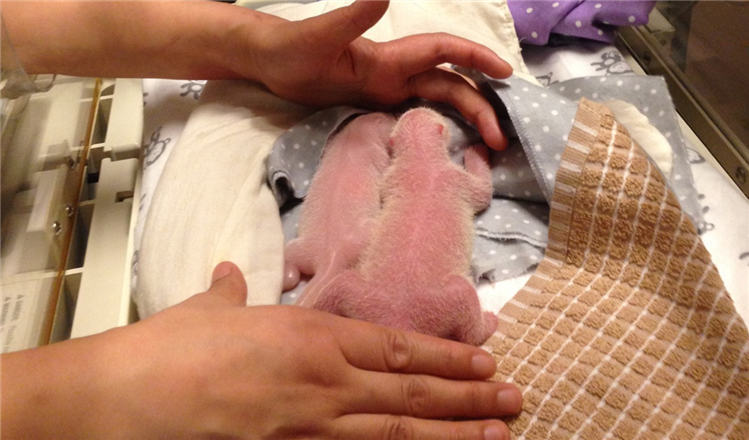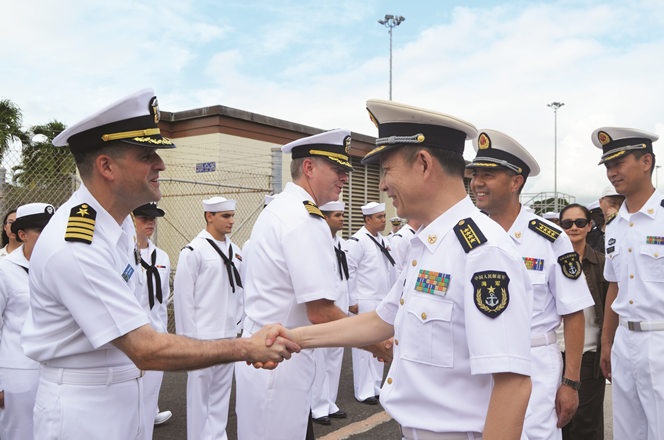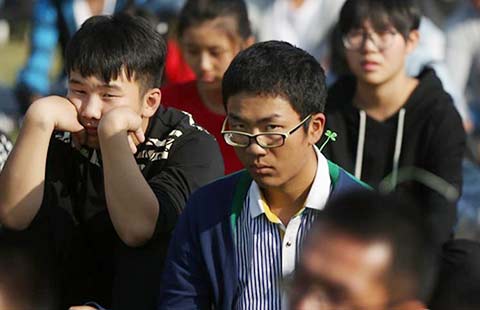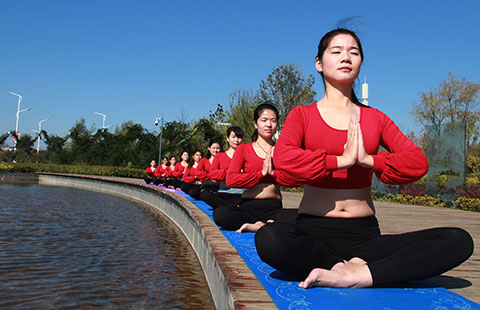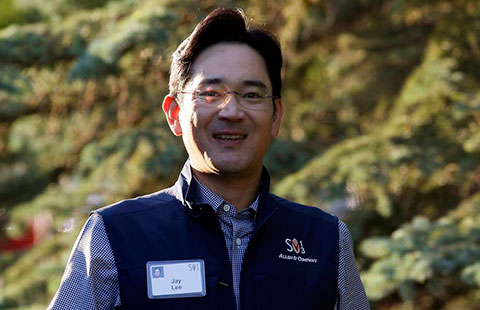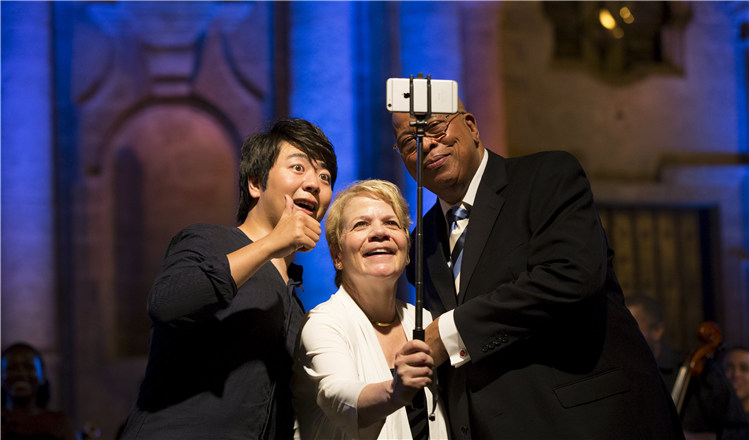English book on Sino-US relations captures insights
Updated: 2015-10-14 07:40
By Mei Jia(China Daily)
|
||||||||
When President Xi Jinping was on his first state visit to the United States, in late September, a new book on China's relations with that country, intended to give English-speaking readers Chinese perspectives on the subject, was released in Beijing.
A Brief History of China-US Relations (1784-2013) captures more than 200 years of Sino-American exchanges since the US merchant ship Empress of China set sail for China.
It has been published by the Foreign Language Press, a division of the China International Publishing Group.
"I hope the book can reflect the main line and trends of exchanges between the two countries," says author Tao Wenzhao, 72, a renowned scholar.
His previous book, A History of Sino-American Relations (1911-2000), which is in Chinese, is widely used as a textbook in the country's universities. After the publishing house commissioned the English book, Tao condensed the three-volume Chinese version into one, and added updates on the relations in the 21st century up to June 2013, according to chief editor Xu Bu.
He says the publisher is hoping to "present Tao's book as a heavyweight book of insights customized for English audience".
In the book, Tao writes that Xi's meeting with US President Barack Obama at Sunnylands Estate in 2013 was "an innovation in the history of China-US relations. The duration, scope and depth of the talks between the two leaders were rare in record".
Tao says that Xi's successful visit to the US this year would set a new milestone.
"In the 21st century, the weight of global and regional issues in China-US relations has increased, and the areas of cooperation have also expanded ... China and the US have actually formed a community of shared interests," Tao says when assessing the current problems between the two countries.
Zhou Mingwei, president of CIPG, the parent body of the publisher, says the book will benefit the group that publishes thousands of English titles every year.
"It's a masterpiece, offering a top Chinese scholar's choices and judgment after going through numerous historical material, and also his own interpretations of the relations," Zhou says.
"It's a book that's important to American readers, especially scholars and policymakers."
According to J. Stapleton Roy, former US ambassador to China and founding director emeritus of the Kissinger Institute on China and the United States at the Woodrow Wilson International Center, American readers who are generally unfamiliar with how US history is taught in Chinese schools, would stand to gain from an improved multidimensional understanding of the historical interactions between the two countries.
"The improved understanding can provide a better base for managing the bilateral relationship in the future," he says.
David M. Lampton, director of China Studies at John Hopkins School of Advanced International Studies, agrees with Tao that China-US relations are becoming more important, and "distinct and far more hopeful in many respects".
He has worked with Tao earlier, describing him as someone "who stand with an exceptionally small group" of scholars in both China and America who have a command over the history of relations between the two countries and a clear understanding of how they are managed.
Tao was deputy director for the Institute of American Studies at top think tank Chinese Academy of Social Sciences in his younger days. He is now an honorary academic there. His younger colleagues at CASS like Yuan Zheng admire his academic rigor in research.
"Professor Tao's foreign language was Russian in the past, but he picked up English himself to cater a new research route," Yuan says.
"All his quotes and terms are precise and coherent with the historical time they were applied, solving the biggest problem such books usually encounter," says Xu Mingqiang, the finalizing editor of Tao's English book.
Warren I. Cohen, a distinguished US scholar, notices that despite the unavoidable competition and ideological differences between the two countries, "Tao bets that the leaders of the two countries will have the wisdom to overcome these".
"He believes that the future will be marked by mutual respect and win-win cooperation," Cohen says of Tao.
"Let us pray that Tao is right," Cohen says.
"In any event, he provides us with insights into Chinese perspectives that may help us to avoid conflict."
meijia@chinadaily.com.cn
(China Daily 10/14/2015 page20)
Most Viewed
Editor's Picks

|

|

|

|

|

|
Today's Top News
Tu first Chinese to win Nobel Prize in Medicine
Huntsman says Sino-US relationship needs common goals
Xi pledges $2 billion to help developing countries
Young people from US look forward to Xi's state visit: Survey
US to accept more refugees than planned
Li calls on State-owned firms to tap more global markets
Apple's iOS App Store suffers first major attack
Japan enacts new security laws to overturn postwar pacifism
US Weekly

|

|
